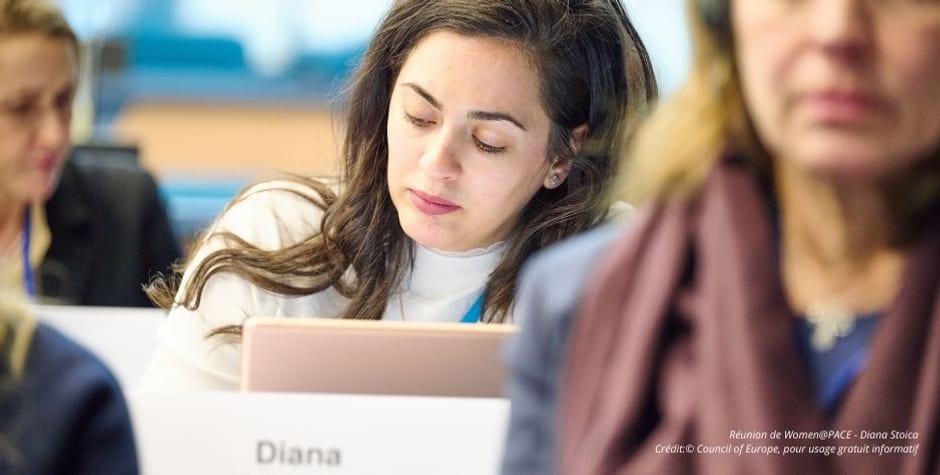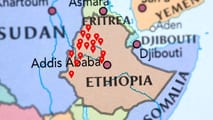

Addictive Behaviours in Children: PACE Timidly Accuses Pornography
Addictive Behaviours in Children
On October 13, 2023, the Parliamentary Assembly of the Council of Europe (PACE) debated in plenary session a report entitled “Preventing addictive behaviours in children”, drafted by Romanian MP Diana STOICA (Alliance of Liberals and Democrats for Europe - ALDE). The European Centre for Law and Justice (ECLJ) had sent its written observations to draw her attention to the issue of children’s access to pornography, an increasingly widespread phenomenon which entails serious risks of addiction. While the ECLJ is pleased to note that the consumption of pornography is recognised on several occasions in the report as a cause of behavioural addiction in children that needs to be combated, it regrets that neither the resolution nor the recommendation adopted unanimously at the end of the plenary session debate expressly mentions this.
Screens, porn and pandemics: an addictive cocktail
The report “Preventing addictive behaviours in children” notes the increase in this type of behaviour, observes the causes, in particular access to pornography, and the “disastrous impact on their mental and physical health and their development” and proposes recommendations to prevent this scourge: “Addressing addictive behaviours in children is thus essential for human rights protection and sustainable development, as enshrined in international legal frameworks and policies. In addition, addictive behaviours are wider than just substance use – they can be associated with social media scrolling, gaming or pornography” (§2). The rapporteur adds that “Non-substance addictions, also called process or behavioural addictions, are even more widespread, more insidious, but less researched. They include addictions to online gaming, social networking, gambling, watching pornography” (§14). Finally, “The research points out that the phenomenon [of Internet addiction] can include addiction to social networks, online gaming, shopping, or pornographic sites” (§16).
The report also echoes the ECLJ’s observations in that it recognises that easy access to screens is a cause of addiction and that the covid-19 pandemic has had very harmful consequences for children, particularly in terms of mental health. It thus states that “To address addictive behaviours, it is essential to understand their root causes. This involves looking at a broad range of areas, [including] easy access to electronic devices” (§19). “The risk of problematic and addictive use of digital networks and devices is increasingly prevalent in our societies, and Covid-19 has only exacerbated such negative aspects. . . While all individuals must learn to regulate their own screen use, and to use technology mindfully, this may be more difficult for children, unless they are given support” (§42). With regard to the pandemic, the rapporteur states that “The child and adolescent mental health crisis resulting from the impact of the pandemic contributed to the development of addictive behaviours in children” (§3). Indeed, “The Covid-19 pandemic has led to increased anxiety among children, with substance-related and other addictive behaviours having served as coping mechanisms among the young, especially during the lockdowns” (§8).
Pornography, an overlooked issue in the texts adopted by the Assembly
A few days before the PACE debate on this report, and seeing that pornography did not appear explicitly in either resolution 2520 (2023) or recommendation 2262 (2023) to be submitted to the vote, the ECLJ again approached the rapporteur to propose that these two texts be amended accordingly. For his part, the Spanish MP José María SÁNCHEZ GARCÍA tried to introduce amendments to include pornography among the addictions listed, but they were not registered due to an apparently recurring technical problem in the application for PACE MPs. Thus, a parliamentary report examining child pornography addiction was adopted, together with a resolution and recommendation that unfortunately ignore the existence of this addiction. However, there was a place for it, as much if not more so than online gambling, which is described as a “particularly worrying phenomenon” (report, §14) and is dealt with extensively throughout these texts. However, the resolution and recommendation are not without interest.
In the resolution, i.e. a PACE position on the subject concerned, the Assembly asks the member states of the Council of Europe to “co-operate closely with the digital industry” in order to prohibit “child access to online gambling and betting in the same way as in the real world” (§9.1): it is indeed logical that what is forbidden offline should also be forbidden online. From this point of view, it would have been appropriate for pornography to have been included in the text, since it is also addictive and access is also forbidden to minors in the real world. However, it is interesting to note that the Assembly also asks States to “[set up] online child-appropriate prevention campaigns concerning […] the excessive use of digital devices” (§9.3). It also invites them “to join the enlarged partial agreement which established the Council of Europe International Cooperation Group on Drugs and Addictions (Pompidou Group)” (§10), which is the Council of Europe’s platform for cooperation on drug policies.
In the recommendation, i.e. an opinion addressed to the Committee of Ministers of the Council of Europe, which is obliged to respond to it, the Assembly “emphasises the responsibility that lies with member States to guarantee the right of children to enjoy the best possible state of health, including by adopting addiction prevention and treatment measures”(§1). It makes several requests to the Committee of Ministers. In particular, it invites it to ask the Groupe Pompidou to “focus their work on behavioural addictions facilitated by online technologies and practices, placing emphasis on the study of addictive behaviours in children and related prevention measures”(§4.2): this should necessarily make it possible to work on pornography addiction. The Assembly further recommends that the Committee of Ministers “instruct the Council of Europe intergovernmental sector to devise tools to raise awareness among children of the consequences of excessive or addictive use of digital tools […] as part of the implementation of its Strategy for the Rights of the Child 2022-2027” (§5).
Finally, it should be noted that on the same day, PACE adopted resolution 2521 (2023) entitled “Mental health and well-being of children and young adults” in which it recommends that the member states of the Council of Europe “take action to address […] concerns that impact the mental health and well-being of children and young adults by taking measures to protect children and young people from being exposed to inappropriate and harmful content on social media” (§7.2.6). The associated report (doc. 15829) states that “Use of social media also increases the possibility of young people being exposed to inappropriate or harmful content, and of being subjected to cyberbullying or predatory behaviours” (§17).
It remains to be seen what action the Committee of Ministers of the Council of Europe and the Pompidou Group will take on pornography addiction. For the latter, Internet addiction is one of the priorities for the 2023-2025 work programme under the Lisbon Declaration of 14 December 2022 which states that “While Internet offers new and positive possibilities, it can be a risk environment for developing behavioural addictions, such as excessive and compulsive video gaming, gambling, online shopping, streaming or social networks use”. It's a shame that the risks associated with unlimited access to online pornography are not more often expressly denounced. In this area, it is now urgent to name the evil in order to combat it more effectively.











